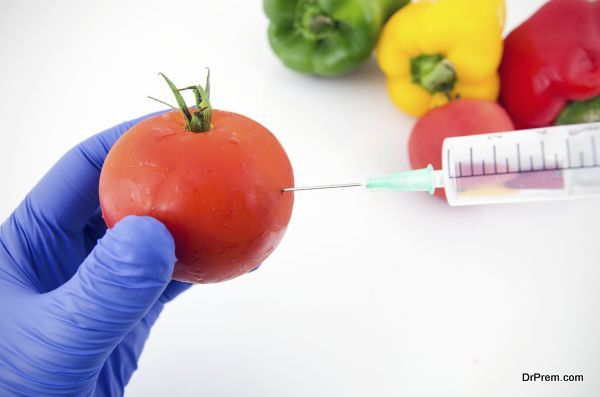Healthy eating is so important in today’s fast-food economy. Today’s consumers are paying closer attention to what’s printed on food labels, and care about the supply chain of the perishables they’re consuming. However, eating organic isn’t easy if you aren’t educated about what to expect.
For example, moving to a new city or town can be difficult for people who don’t know where to start their healthy eating endeavors in a foreign place. In addition to doing your research, you should check out local reviews on platforms like Welcome Wagon, a portal that aims to connect new residents with reputable local businesses in the area. Use this as a starting point towards finding local, organic ingredients to mix into your meals.
But of course, even after you’ve identified the best places in your neighborhood to shop and eat organically, you need to be convinced that the organic route is the way to go. Here are five reasons why it should be your primary focus:
Natural Ingredients
Many consumable products today employ the use of GMOs. This practice didn’t exist when George Washington was founding our country. Food grew from the ground, was harvested and served at the table. Simple. But GMOs are used in many consumable non-food products today, like medicines, vaccines, skin care, makeup and other beauty products.
Why use something that has been tampered with when you can choose natural ingredients? Many companies have made it their mission to bring their customers naturally-sourced ingredients. Why does it matter to have organic, naturally-sourced products? They provide nutrient-rich benefits, preserve our ecosystem, avoid hormones and GMOs, and are ethically-sourced.
Avoid hormones and GMOs
Hormones and genetics are natural, right? Right. We think of “modify” as an upgrade. In the consumer world, however, these two things can do more harm than good. When a food or mineral or substance is “genetically modified”, it can be produced in a lab in mass quantities, thereby changing its nutritional value and its purity. We may know from experience that hormones are delicate chemicals that can affect the way we grow, feel, and even interfere with, or create health issues. Some of these artificial ingredients can even cause weight gain, antibiotic resistance, and can instill a false sense of hunger in the human body. It’s important to look for the label and make the healthiest ingredient choice for the healthiest lifestyle.
More Nutrient-Rich Benefits
Many items on the beauty shelf today are Vegan, which is helpful for one type of consumer, but the ones that contain egg yolks are dense in nutrients to nourish the skin. Other nutrient-rich sources include: salmon, shellfish, liver (if you’ve got the stomach for it!), sardines, salmon, seaweed and dark chocolate. Not that you’d need another reason to keep just a bit of that last one in your house. When it comes to skin care, who would think of oil in an acne-fighting product? But some nutrient-rich products for acne include pumpkin seed oil, grape seed oil, and Black Cumin seed oil to nurture your skin, while cleansing and refreshing it.
Preserves Ecosystem
How does buying organic help our ecosystem? Well, organic products come from organic farming. Organic farming uses natural pesticides to produce food that will thrive. If you’ve compared organic to non-organic products at the store, you’ve likely seen that an organic tomato is larger, redder, and much bigger than its non-organic neighbors. This is due, in part, to the lack of harmful pesticide use.
Chemical pesticides taint the soil, use up the natural resources, and destroy a crop’s ability to thrive and produce through its own ecosystem. Chemical pesticides enhance erosion, seep into our soil and water supply, and affect our health negatively. Additionally, organic farms significantly reduce the amount of carbon dioxide in the air, which slows the rapidly increasing climate problem.
Ethically Sourced
What does it even mean to be “ethically-sourced,” some consumers may ask. Here’s your answer. In a nutshell, the practice of ethical sourcing means that the product you’re buying has been created, processed, packaged, if applicable, and transported using ethical standards. These standards include but are not limited to: fair treatment and pay of the workers in every part of the process, eco-conscious production methods were used, and social norms and preferences were taken into consideration.
First and foremost, the producers or farmers of the ingredients are paid a fair wage to live a sustainable lifestyle. They have a higher quality of life, making them use the utmost care to prepare and deliver these ingredients.
Next, the methods of producing these elements include ones that are conscious of doing the least amount of damage to the environment or making the environment even more prosperous than it was before.
Social consciousness refers to the methods in which the products are processed and promoted. Take eggs, for example. When you see “free-range” or “cage-free,” it means that the chickens that produce these eggs have an open environment, free to roam in a natural and stress-free setting without overcrowding or overproduction. Additionally, other things to look for are “No RSBTs or growth hormones used.” This signifies that no GMOs or other enhancers were used to make animals grow bigger too fast or add in chemicals and hormones they do not already have. This way, those additives are not passed on to the consumer.
In closing, it is worth it to find fairly-sourced organic products that make you feel good and that you can feel good about using.
Article Submitted By Community Writer





